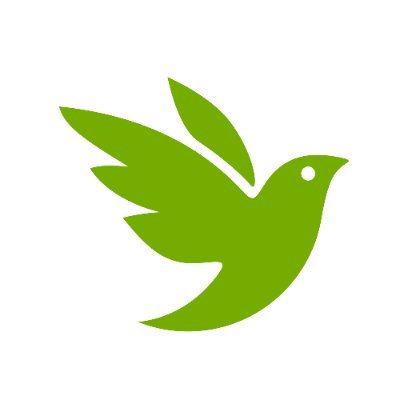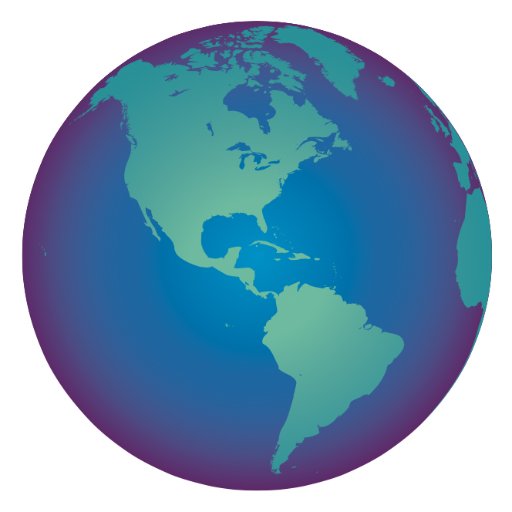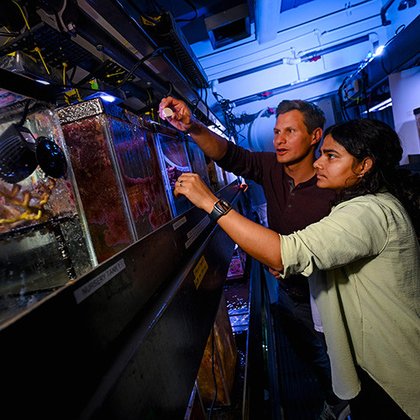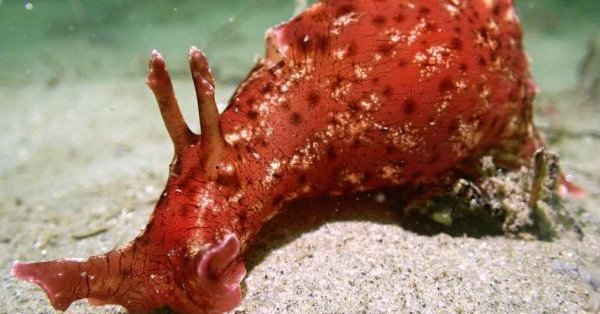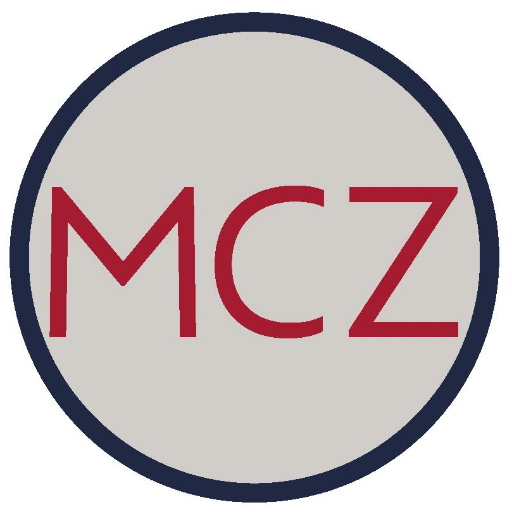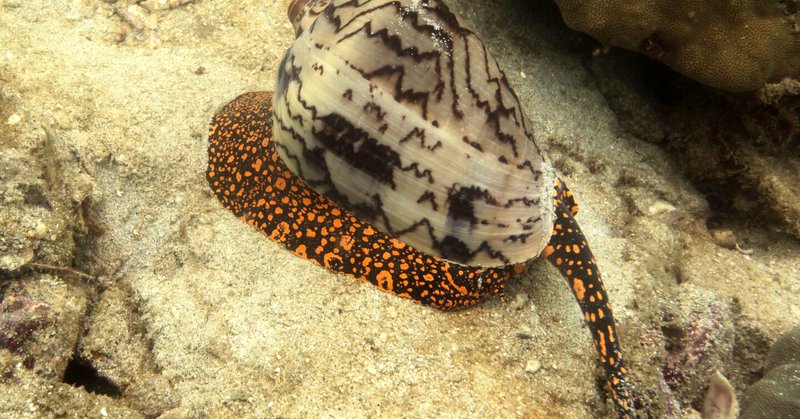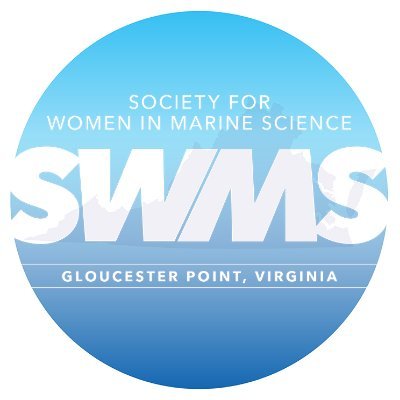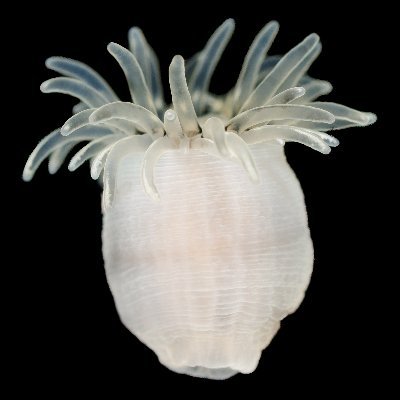
DigInverts
@DigInverts
Followers
297
Following
200
Media
83
Statuses
205
Making marine invertebrate collections accessible for all. 🦀🦑🦞🦐 Funded by the National Science Foundation. #diginverts #NSFfunded
Joined October 2021
Ever wondered where Nemo lives? 🐠 In the Indo-Pacific, clownfish live with Entacmaea quadricolor (bubble-tip anemones). The anemones shelter the fish, & the fish provide the anemones nutrients and defend them from predators & parasites. Nature’s teamwork—mutualistic symbiosis!
0
0
2
You're currently looking at Phylliroe bucephala — a parasitic sea slug that lives its life in the open ocean — and the colorful stuff is its guts (and their contents). 📷 alaineden on iNaturalist 📍 Guadeloupe 🔗: https://t.co/mhM0cH2Ypv
#ObservationOfTheDay
2
23
119
We're hiring! iNaturalist is searching for a Senior Staff Mobile Engineer team to lead the continued development of our cross-platform applications. Learn more: https://t.co/1Ad678MyFi
0
7
24
Naomi Rodriguez @NHMLA uses integrative taxonomy to better ID marine isopods—tiny but vital players in marine ecosystems—tackling the challenge of consistent species IDs for this group. She also made a zine to bring isopods to life! https://t.co/NziRM5nVif
#WednesdayWisdom
0
1
9
Some of the best inventors “study nature, not books.” 🎨 by Natalie Renier, 🖋️ by Hannah Piecuch/WHOI Creative #OceanMatters #BlueEconomy #WorldOceanDay #DesignByNature #OceanInspiration #OceanInnovation
0
4
10
It's #WormWednesday 😌🪱 Here's a very good flatworm, possibly in the Genus Paraplanocera. 📷 adrian2370 on iNaturalist 📍 Australia 🔗: https://t.co/ALCbOtX4ZZ
#ObservationOfTheDay
1
8
82
#FridayFunFact Sea urchins have no eyes, bones, heart, or brain — yet they can still sense light! Their whole body acts like one big eye as they use their tube feet & spines to detect changes in light & navigate their surroundings.👁️ Heliocidaris australiae, found off Australia.
0
2
5
Ready for the DEEPEST dive you've ever taken? Explore the mysterious, rarely-seen world hidden beneath the waves in our new special exhibition, #UnseenOceans, opening on March 15. 🌊 https://t.co/WK1M8meJhi 🎨: © @AMNH
0
5
41
In #UnseenOceans: 🪼 Encounter glow-in-the-dark fish and plankton. 🪼 Pilot through the depths in an interactive submersible game. 🪼 Meet real-life seahorses, eels, and jellies up close. Plan your visit. 🌊 https://t.co/WK1M8meJhi
0
10
34
This seagull definitely heard we’re looking for sea stars this month… All iNaturalist observations of CA sea stars count towards the 2024 Solstice Sea Star Search, but maybe avoid replicating this bird’s invasive approach. More at https://t.co/v1Tj2dTqLn © Ellyne Geurts
1
8
20
Understanding a new phylum: the Micrognathozoa were discovered only 25 years ago - NHM's Christopher Laumer with colleagues @uni_copenhagen @MCZHarvard @UniBarcelona explore biology, evolution and distribution https://t.co/K6tNQ5YsPk
1
11
27
As of 2025, there are over 8 million estimated species on Earth, over 2 million species described so far, and over 500,000 species documented on iNaturalist.
2
5
13
Atlantic Bobtails (Sepiola atlantica), like many squids in the same family, have a specialized light organ that helps them camouflage & evade predators as they hunt at night. 📷 unorthodox_sketch on iNaturalist 📍 United Kingdom 🔗: https://t.co/1BARMiYDzd
#ObservationOfTheDay
0
8
77
🪸 An innovative approach to #CoralReefRestoration: Gel! A new substance designed by Scripps Oceanography & @UCSDJacobs scientists improved coral larvae settlement by up to 20X! Learn more about SNAP-X & how it's helping corals thrive. ⬇️ 🌊 @ReefEngineers
https://t.co/tV2U6C9FS5
scripps.ucsd.edu
Coral larvae are picky about where they attach and settle down. One of the ways they decide is by “smelling” chemicals in the water that are associated with healthy reefs.
3
5
28
🌊 If you frequent #SanDiego tidepools, you've probably spotted these delightful locals. Meet the #SeaHare! Charlotte Seid, manager of the Benthic Invertebrate Collection at Scripps Oceanography, shares more about these cool creatures for @sdut. ⬇️ https://t.co/5FzItkFuqv
sandiegouniontribune.com
Types of large sea slugs called the California sea hare and black sea hare can be found off the coast and in tide pools
1
2
9
Get to know Mandë Holford @scimaven, incoming Curator of Malacology and @HarvardOEB professor, and her research on venomous sea creatures. Harvard builds a new lab for venomous sea creatures https://t.co/ow08qG2Tgs via @BostonGlobe
bostonglobe.com
Harvard biologist Mandë Holford studies venomous snails and other toxic creatures to unlock new medications that may one day treat cancer.
0
3
6
In January, MCZ collections hosted students from the @HarvardExt Museum Collections Care course. Students worked with many MCZ collections on a variety of projects.
0
3
20
Five new species of squat lobsters have been described by @paularodflo, former Biodiversity Postdoctoral Fellow. Munidopsis giribeti is named to honor MCZ director and @HarvardOEB professor @ggiribet's inspirational passion and dedication to invertebrates. https://t.co/QBHMNXRRVZ
1
15
38
Alex Schneider is a SWMS@VIMS student co-lead! She loves being a part of SWMS@VIMS, connecting with members, and elevating the voices of women in marine science! Alex is a PhD candidate at studying female blue crab reproduction! @akschneider10 @VIMS_Grad_Dean #FeatureFriday
0
2
13

